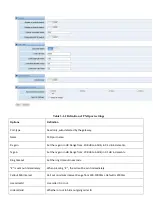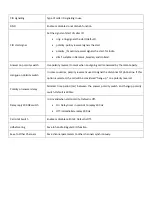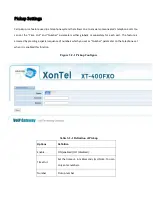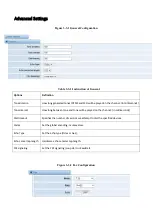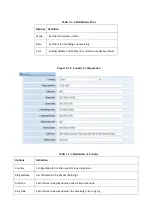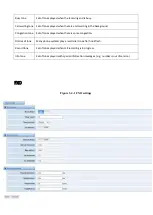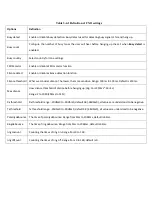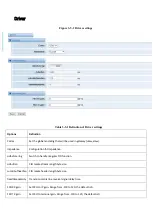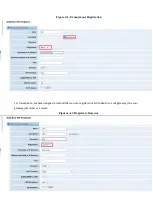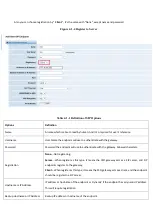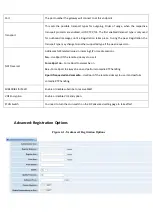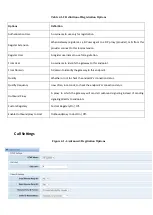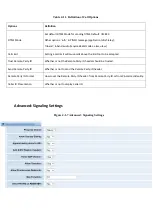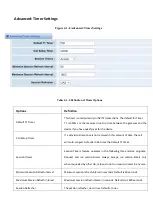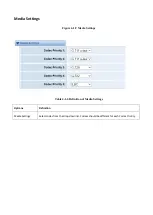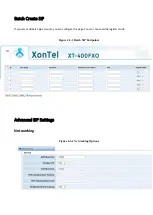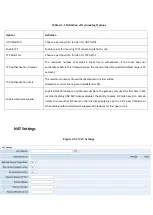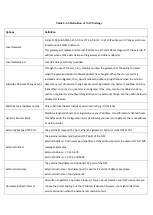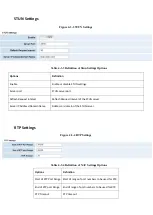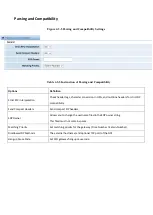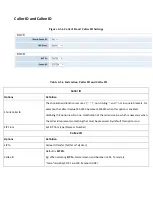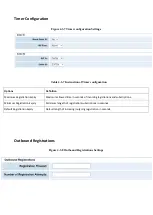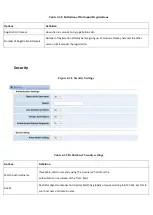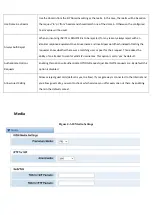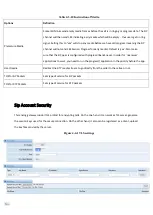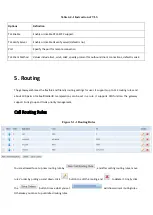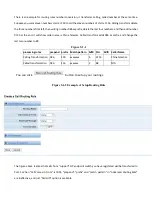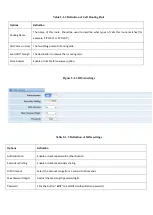
Table 4-1-4 Definition of Signaling Options
Options
Definition
Progress Inband
If we should generate in-band ringing.
Always use ‘never’ to never use in-band signaling, even in cases where some
buggy devices might not render it.
Valid values: yes, no, Never. Default: never.
Allow Overlap Dialing
Allow Overlap Dialing: Whether or not to allow overlap dialing. Disabled by default.
Append user=phone to URI
Whether or not to add ‘; user=phone’ to URIs that contain a valid phone number.
Add Q.850 Reason Headers
Whether or not to add Reason header and to use it if it is available.
Honor SDP Version
By default, the gateway will honor the session version number in SDP packets and
will only modify the SDP session if the version number change. Turn this option off
to force the gateway to ignore the SDP session version number and treat all SDP
data as new data. This is required for devices that send non-standard SDP packets
(observed with Microsoft OCS). By default this option is on.
Allow Transfers
Whether or not to globally enable transfers. Choosing 'no' will disable all transfers
(unless enabled in peers or users). Default is enabled.
Allow Promiscuous Redirects
Whether or not to allow 302 or REDIR to non-local SIP address.
Note that promiscredir when redirects are made to the local system will cause loops
since this gateway is incapable of performing a "hairpin" call.
Max Forwards
Setting for the SIP Max-Forwards header (loop prevention).
Send TRYING on REGISTER
Send a 100 Trying when the endpoint registers.

